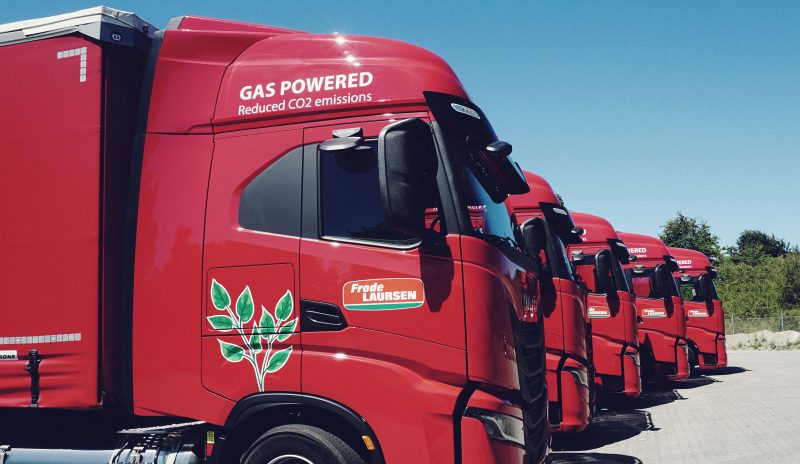Ragn-Sells and Frode Laursen: Collaboration ensures success with biogas-powered trucks

Frode Laursen and Ragn-Sells, a leading player within sustainable waste handling, have together managed to reduce their respective carbon footprints by introducing biogas-powered trucks on a regular route. A good and viable solution says Ragn-Sells, which sees long-term partnerships as one of the keys to success on the green front.
Until electric trucks and Power-to-X become a real option for the transport sector, it is necessary to take an alternative approach to driving the green transition. And this is what Ragn-Sells and Frode Laursen are doing, as they have teamed up and introduced biogas-powered trucks on a regular route between Norway and Sweden.
“At Ragn-Sells, we are striving to have as fossil-free a fleet as possible, and here liquid biogas-powered trucks are a very good supplement. Today, liquid biogas (LBG) is the most suitable renewable fuel for long-haul operations on the market. At the same time, we also believe there will be a need in the future for several alternative fuels, with biogas being one of them,” explains Johnny Evertsson, Head of Logistics at Ragn-Sells.
Collaboration is the way forward
Taking a long-term perspective and partnering with Frode Laursen has, according to Johnny Evertsson, been key to ensuring a successful implementation. And according to him, it is also a very important aspect if, as a company, you want to take a circular approach.
“The implementation together with Frode Laursen has been successful thanks to the fact that we both have stable material flows and a long-term perspective. This has now resulted in us achieving a significant reduction in our CO2 and particle emissions after implementing biogas-powered trucks,” says Johnny Evertsson.
Dialogue yields success
One significant obstacle to the successful introduction of biogas trucks is the existing infrastructure and refuelling options. Here, geography is an important factor in terms of refuelling with biogas. At Frode Laursen, Jens Sørensen, COO, Road International, which covers transports within and across northern Europe countries, says:
“It means that we must engage in close dialogue with our customers to find out whether and how it is possible to introduce biogas-powered trucks. We do so by, among other things, examining the concrete transport tasks and driving patterns together to see where the infrastructure allows it,” says Jens Sørensen, adding:
“We want to deliver on the green transition, and right now biogas offers a very good solution which also gives results from day one.”
LBG is liquefied biogas, which is usually made from livestock manure and organic waste. LBG emits up to 100% less CO2 compared to diesel.
